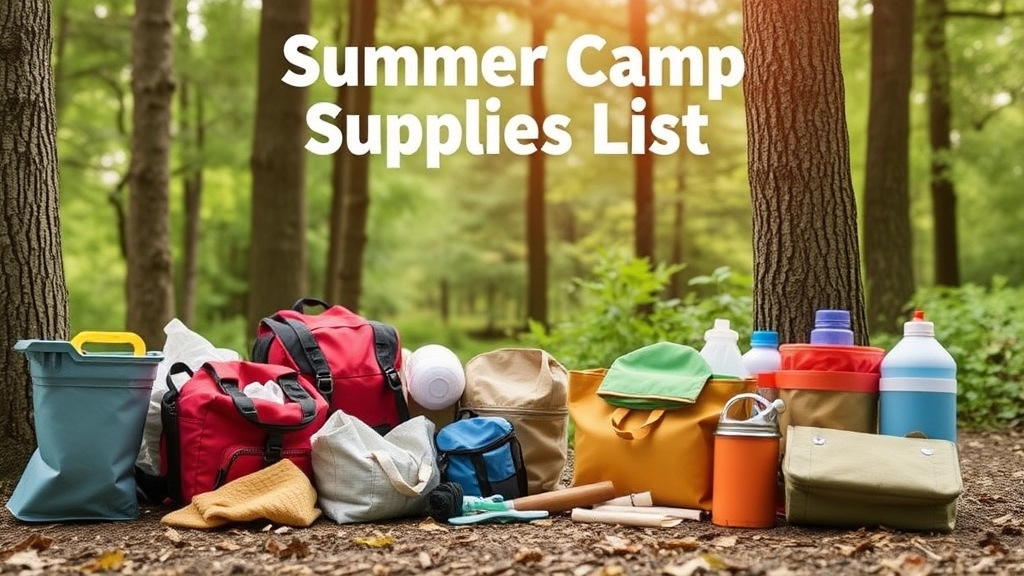Preparing for Summer Camp
When it comes to preparing for summer camp, having a well-organized supplies list can make all the difference. As a parent, I know the importance of ensuring my child has everything they need for a fun and safe experience. From essential clothing to outdoor gear, the right supplies can set the stage for memorable camp adventures.
Comprehensive Summer Camp Supplies List
To help you get started, I’ve put together a comprehensive Summer Camp Supplies List that covers everything from toiletries and personal care items to first-aid kits and snacks. Whether your child is heading to a day camp or an overnight camp, this guide will ensure you’re fully prepared for any activity or weather condition they might encounter. Let’s dive in and make sure nothing is left behind!
Essential Clothing for Summer Camp
So, you’re gearing up for summer camp, huh? Awesome! But I bet you’re wondering, “What the heck do I pack?” Don’t worry, I got you covered. Let’s dive into the essential clothing for summer camp, making sure you’re prepped for anything Mother Nature throws your way.
Why the Right Clothing Matters
First off, let’s get real. The right clothing can make or break your camp experience. Imagine being stuck in the woods with the wrong gearâsweating buckets or shivering like a popsicle. Not fun, right? So, let’s nail this.
The Must-Have List
Here’s a no-nonsense list of the essential clothing you’ll need:
- T-Shirts and Tank Tops: Go for lightweight, breathable fabrics. Cotton or moisture-wicking materials are your best friends here.
- Shorts: Comfort is key. Opt for quick-dry options, especially if you’re going to be near water.
- Long-Sleeve Shirts: Perfect for those cooler nights or when you need some extra sun protection.
- Swimwear: A no-brainer if you’re planning to hit the lake or pool. Bring at least two so you always have a dry one.
- Underwear and Socks: Pack more than you think you’ll need. Trust me, you’ll thank yourself later.
- Pyjamas: Lightweight and comfy. You don’t want to be tossing and turning all night.
- Jacket or Hoodie: Even summer nights can get chilly. A lightweight hoodie or jacket will do the trick.
- Rain Gear: A waterproof jacket or poncho is a lifesaver. You never know when a summer storm will hit.
- Hat and Sunglasses: Keep the sun out of your eyes and off your face. A wide-brim hat offers the best protection.
Pro Tips for Packing
- Layer Up: Think layers. It’s easier to add or remove clothing as the temperature changes.
- Versatility: Choose items that can be mixed and matched. It saves space and gives you more outfit options.
- Comfort Over Style: You’re at camp, not a fashion show. Prioritise comfort and practicality.
Real Talk: My First Camp Experience
I remember my first summer campâI packed like I was going to a fashion week. Big mistake. Halfway through, I realised I didn’t have enough practical clothing and ended up borrowing from my bunkmates. Lesson learned. Now, I stick to the essentials and always pack smart.
Got any questions or worries about what to pack? Drop them in the comments, and let’s get you sorted! For more tips, check out our Ultimate Summer Camp Pack List and learn about the importance of Summer Camp Uniforms.
Toiletries and Personal Care Items
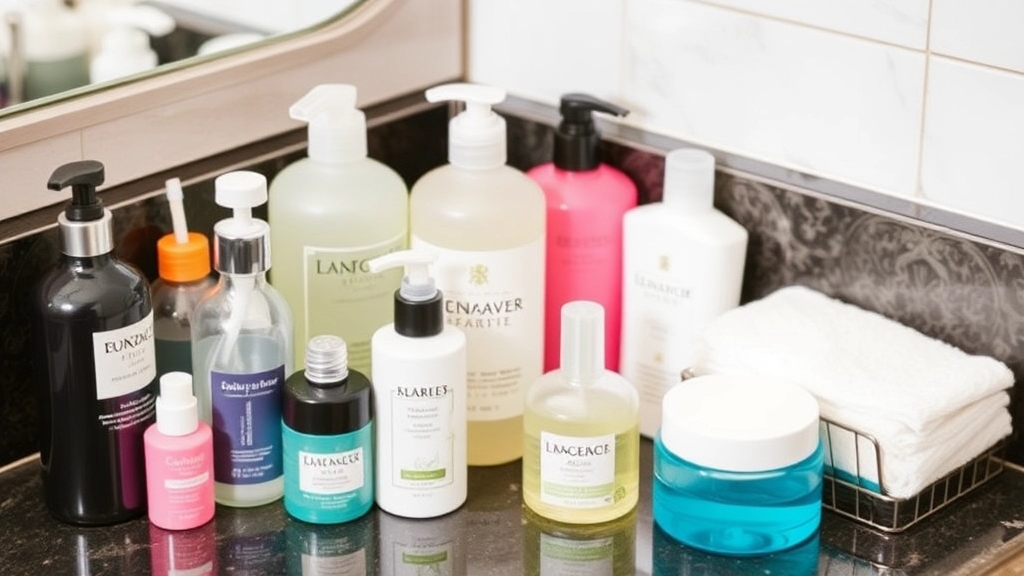
Ever wondered what toiletries and personal care items you actually need for summer camp?
Let’s break it down.
First off, toothbrush and toothpaste are non-negotiables.
You don’t want to be that person with bad breath.
Next, soap and shampoo.
Trust me, after a day of hiking, you’ll need it.
And don’t forget, deodorant.
No one likes a smelly camper.
The Essentials
- Toothbrush and Toothpaste: Keep your smile fresh and clean.
- Soap and Shampoo: For washing off that camp grime.
- Deodorant: Because no one wants to smell bad.
Hair and Skin Care
- Comb or Brush: Keep your hair tangle-free.
- Sunscreen: Protect your skin from harmful UV rays.
- Lip Balm: Chapped lips are no fun.
Hygiene Must-Haves
- Towels: One for the shower, one for the beach.
- Sanitary Products: Ladies, you know what you need.
- Hand Sanitiser: For when soap and water aren’t around.
Stories From Camp
I remember my first camp.
Forgot my sunscreen.
Ended up looking like a lobster.
Lesson learned.
Packing Tips
- Travel-sized bottles: Save space.
- Plastic bags: For wet or dirty items.
- Label everything: So it doesn’t get lost.
Bedding and Sleeping Gear
Alright, let’s talk about one of the most crucial aspects of your summer camp experience â bedding and sleeping gear. No one wants to be tossing and turning all night, right? So, how do you make sure you sleep like a baby under the stars?
Why Bedding and Sleeping Gear Matter
Ever tried to sleep on the hard ground with just a thin blanket? Not fun. Your bedding can make or break your camp experience. A good night’s sleep sets you up for a day full of activities, so let’s get this right.
Essentials to Pack
Here’s a breakdown of what you need:
- Sleeping Bag: Opt for a lightweight, summer-specific sleeping bag. Look for one that’s easy to pack but still offers good insulation.
- Sleeping Pad or Air Mattress: Trust me, this is a game-changer. It adds a layer of comfort between you and the ground. Plus, it helps with insulation.
- Pillow: A small, compressible camping pillow works wonders. If you’re tight on space, a pillowcase stuffed with clothes can do the trick.
- Blanket: A lightweight, compact blanket can add extra warmth if the nights get chilly. It’s also great for lounging around the campfire.
- Sheet or Sleeping Bag Liner: These are fantastic for adding a bit of extra warmth and keeping your sleeping bag clean.
Pro Tips for Bedding and Sleeping Gear
- Check the Weather: Always check the forecast before you pack. You don’t want to be caught off guard by unexpected cold snaps or rain.
- Test Your Gear: Before you head out, set up your sleeping gear at home. Make sure everything is in good condition and you know how to use it.
- Pack Smart: Use compression sacks to save space in your backpack. Trust me, every inch counts.
- Layer Up: If it’s going to be cold, wear layers to bed. Thermal underwear can be a lifesaver on chilly nights.
Real Talk: Stories from the Campfire
I remember my first summer camp. I thought a thin blanket would be enough. Big mistake. I woke up freezing in the middle of the night, and it ruined my next day. Lesson learned. Now, I always pack a proper sleeping bag and an air mattress. It’s like night and day.
Quick Checklist
- Sleeping Bag
- Sleeping Pad or Air Mattress
- Pillow
- Blanket
- Sheet or Sleeping Bag Liner
For more tips on making your summer camp experience unforgettable, check out our Ultimate Guide to Must-Have Items for Summer Camp and explore the Top Tips and Gear Essentials for Summer Camping.
Outdoor Equipment and Gear
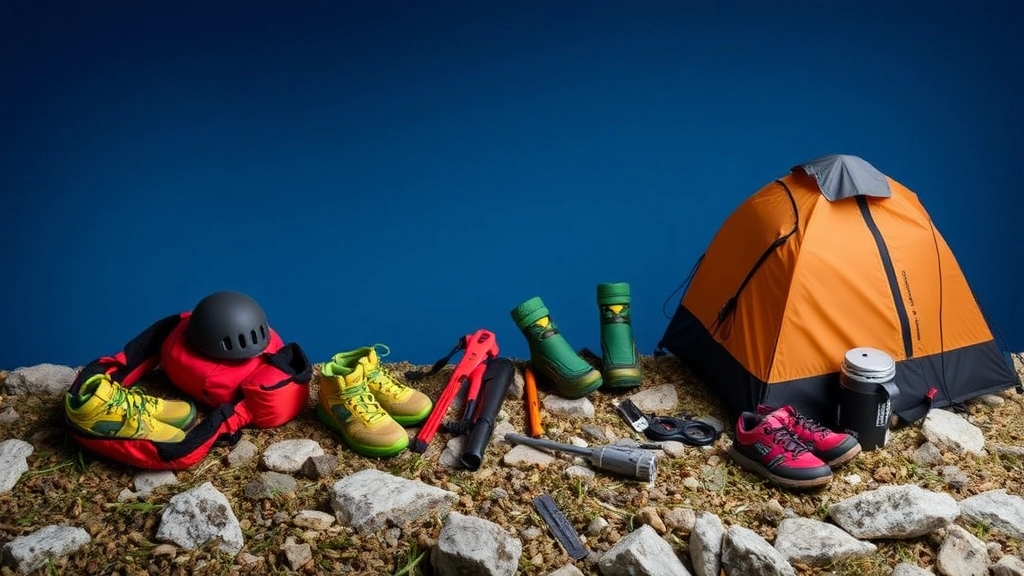
Ever wondered what outdoor gear you actually need for summer camp?
It’s a common worry.
You don’t want to overpack, but you definitely don’t want to be caught without the essentials.
Let’s break it down.
Backpack
- Comfortable Fit: Make sure it’s adjustable and padded. Trust me, your shoulders will thank you.
- Multiple Compartments: Keeps you organised and makes finding stuff easier.
Water Bottle
- Durable and Leak-Proof: You’ll be on the move a lot. You don’t want spills.
- Insulated: Keeps your water cool for those hot summer days.
Torch/Headlamp
- Hands-Free Headlamp: Perfect for late-night activities or trips to the loo.
- Extra Batteries: Always have a backup. You don’t want to be left in the dark.
Multi-Tool
- Swiss Army Knife: Handy for all sorts of tasks, from cutting rope to opening cans.
- Safety Lock: Make sure it’s secure to avoid any accidents.
Rain Gear
- Waterproof Jacket: Even in summer, rain can surprise you.
- Poncho: Lightweight and easy to pack.
Sunscreen and Bug Spray
- High SPF: Protect that skin! You don’t want to deal with sunburn.
- Bug Repellent: Keeps those pesky insects at bay.
Map and Compass
- Old School Navigation: GPS might fail you. Know how to use a map and compass.
- Camp Map: Familiarise yourself with the layout before you go.
Camping Chair
- Foldable and Lightweight: Easy to carry and set up.
- Comfortable: After a day of activities, you’ll want a good seat.
First-Aid Kit
- Basic Supplies: Bandages, antiseptic wipes, pain relievers.
- Personal Meds: Don’t forget any prescription medications you need.
Whistle
- Emergency Use: If you get lost or need help, a whistle can be a lifesaver.
- Loud and Clear: Make sure it can be heard from a distance.
Here’s a quick story.
Last summer, I forgot my rain jacket.
One unexpected shower and I was soaked.
Lesson learned.
Always pack for the unexpected.
Outdoor gear isn’t just about having the right stuff; it’s about being prepared for anything camp life throws at you.
So, what’s the one piece of outdoor gear you can’t live without?
Footwear for Different Camp Activities
Alright, let’s talk about something crucial for your summer camp experienceâfootwear. You might be wondering, “What kind of shoes do I actually need for camp?” It’s a valid question. The right shoes can make or break your time outdoors. Trust me, you don’t want to be that person with blisters or soggy feet. So, let’s dive into it.
Everyday Camp Shoes
First off, you need a solid pair of everyday camp shoes. These are your go-to shoes for walking around the campsite, heading to the dining hall, or just lounging around. Think comfort and durability.
- Trainers: A sturdy pair of trainers is a must. They offer good support and are versatile enough for various activities.
- Sandals: Opt for sandals with good arch support and straps. Perfect for those hot days when you want your feet to breathe.
Hiking Boots
If your camp involves any hiking, you can’t skimp on good hiking boots. These boots are designed to support your ankles and provide traction on rough terrain. Here’s what you should look for:
- Waterproof: Weather can be unpredictable. Waterproof boots keep your feet dry.
- Ankle Support: Essential for preventing sprains.
- Breathable Material: Keeps your feet from getting too sweaty.
Water Shoes
Water activities are a big part of summer camp. Whether it’s kayaking, swimming, or just splashing around, you need shoes that can handle the wet conditions.
- Quick-Drying: Look for shoes made from materials that dry quickly.
- Non-Slip Soles: Essential for slippery surfaces like rocks or wet docks.
- Comfortable Fit: Make sure they stay on your feet even when wet.
Specialised Activity Shoes
Some camps offer specialised activities like rock climbing or horseback riding. For these, you’ll need specific footwear.
- Climbing Shoes: Designed to give you the grip and flexibility needed for climbing.
- Riding Boots: If your camp has horse riding, proper riding boots are a must for safety and comfort.
Flip-Flops for the Shower
Don’t forget a pair of flip-flops for the shower. Trust me, communal showers can be a breeding ground for bacteria. Flip-flops will keep your feet protected.
Quick Recap:
- Everyday Camp Shoes: Trainers or supportive sandals.
- Hiking Boots: Waterproof, ankle support, breathable.
- Water Shoes: Quick-drying, non-slip, comfortable fit.
- Specialised Shoes: Climbing shoes or riding boots if needed.
- Shower Flip-Flops: Essential for hygiene.
Real Talk: Why It Matters
I remember my first summer camp. I thought one pair of trainers would do the trick. Big mistake. By day three, my feet were blistered, and my shoes were soaked from an unexpected rainstorm. Don’t be me. Pack the right shoes. Your feet will thank you.
For more tips on preparing for camp, check out our Ultimate Guide to Kids Summer Camps and explore some fun activities at summer camp to make the most of your experience!
Water-Related Essentials
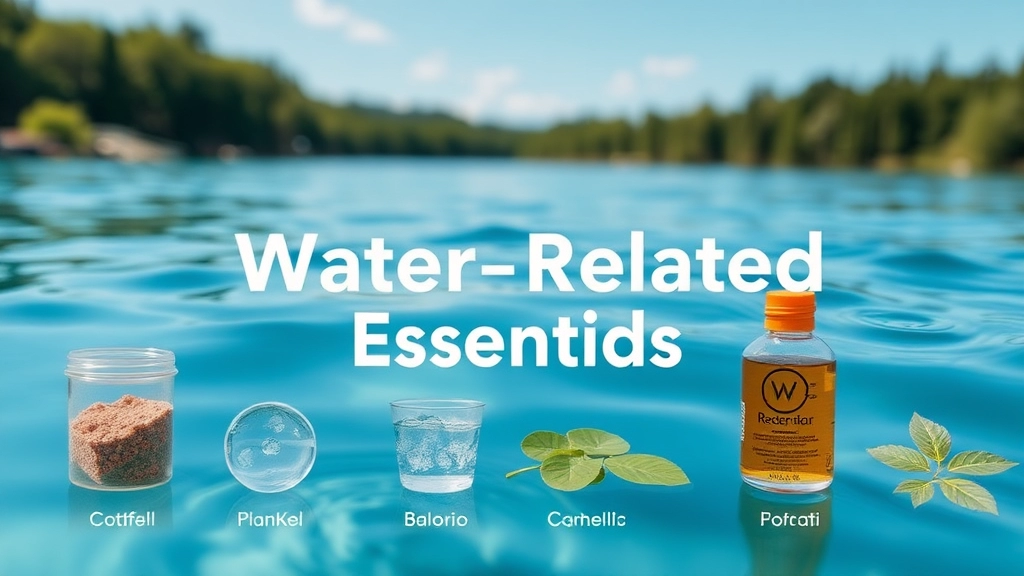
Alright, let’s get real. When you’re heading to summer camp, water-related gear is a must.
Ever wondered what you really need to make sure your time by the water is epic and safe?
Let’s dive in.
Must-Haves for Water Fun
Swimwear
- Multiple Swimsuits: One is never enough. Trust me, you’ll need at least two.
- Rash Guards: Protects you from sunburn and those pesky rashes.
Towels
- Quick-Dry Towels: Regular towels are okay, but quick-dry ones? Game-changer.
- Beach Towel: Bigger and better for lounging.
Safety Gear
Life Jackets
- Personal Floatation Device (PFD): Even if you can swim like a fish, camps often require them.
Water Shoes
- Anti-Slip Water Shoes: No one wants to slip on those wet rocks.
Sun Protection
Sunscreen
- Waterproof Sunscreen: Because who wants to reapply every 30 minutes?
- SPF 50+: Go big or go home.
Hats and Sunglasses
- Wide-Brim Hat: Keeps the sun off your face.
- UV-Protected Sunglasses: Your eyes need love too.
Hydration
Water Bottles
- Insulated Water Bottle: Keeps your drink cold all day.
- Hydration Pack: Hands-free hydration while you’re kayaking or paddleboarding.
Extra Gear
Dry Bags
- Waterproof Dry Bags: Keeps your stuff dry when you’re not.
Snorkelling Gear
- Mask and Snorkel: If your camp’s got some cool underwater sights.
Inflatables
- Floaties: Because floating around is just fun.
Real Talk
Remember that time I forgot my waterproof sunscreen?
Big mistake.
Came back looking like a lobster.
And trust me, no one wants to be the lobster.
So, pack smart.
Think about what you’ll actually use and what will make your life easier.
Water-related essentials can make or break your camp experience.
First-Aid and Safety Supplies
Ever worried about what happens if you get a nasty cut or a headache while at summer camp? You’re not alone. First-aid and safety supplies are the unsung heroes of any camping trip. Trust me, you don’t want to be caught off guard. Here’s a straightforward guide to ensure you’re prepared for anything the great outdoors throws at you.
Basic First-Aid Kit Essentials
First things first, you need a solid first-aid kit. It’s not just about having band-aids; it’s about having the right gear to handle any minor mishap. Here’s what I always pack:
- Band-aids in various sizes â Because blisters and small cuts are inevitable.
- Antiseptic wipes â Clean wounds before they become a problem.
- Gauze pads and adhesive tape â For those bigger scrapes and cuts.
- Tweezers â Splinters and ticks are a pain, literally.
- Scissors â Handy for cutting tape or gauze.
Medications and Treatments
Now, let’s talk meds. You don’t need a pharmacy, but a few essentials can make a world of difference:
- Pain relievers (ibuprofen or paracetamol) â For headaches, muscle aches, and general pain.
- Antihistamines â In case of unexpected allergies.
- Hydrocortisone cream â Perfect for bug bites and skin irritations.
- Anti-diarrhoea tablets â Trust me, you’ll thank me later.
Safety Gear
It’s not just about treating injuries; it’s about preventing them. Here’s some gear that can keep you safe:
- Sunscreen (SPF 30 or higher) â Sunburns are no joke.
- Insect repellent â Mosquitoes and ticks can ruin your trip.
- Emergency blanket â Lightweight and can save you in a pinch.
- Whistle â For signalling if you get lost.
Real-Life Example
Picture this: You’re out on a hike, and your mate trips and scrapes their knee pretty badly. With your well-stocked first-aid kit, you clean the wound with an antiseptic wipe, apply a gauze pad, and secure it with adhesive tape. Crisis averted, and you’re back on the trail in no time.
Pro Tips
- Check expiration dates â Medications and creams do expire.
- Customise your kit â Tailor it to your specific needs and the camp activities you’ll be doing.
- Keep it accessible â Don’t bury your first-aid kit at the bottom of your bag.
For more tips on ensuring a smooth and enjoyable camping experience, check out our top summer camp tips and reviews from Reddit. Additionally, if you’re planning a themed camp, our summer camp themes and descriptions guide can provide you with some fantastic ideas.
Snacks and Hydration
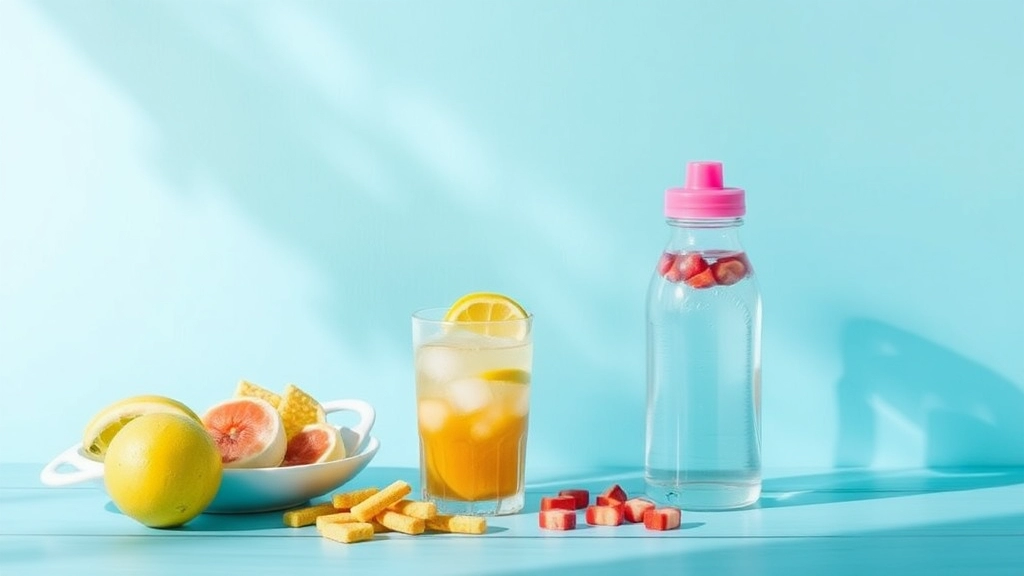
Alright, let’s talk snacks and hydration for summer camp.
Ever wondered how to keep your energy up and stay hydrated during those long camp days?
You’re not alone.
Snacks and hydration are crucial.
Trust me, you don’t want to be the one running out of steam halfway through a hike.
Why Snacks Matter
Snacks keep you going.
Simple as that.
But not just any snacks.
You need ones that are easy to pack and won’t spoil.
Think about it:
- Trail mix: Nuts, dried fruits, and maybe a bit of chocolate.
- Granola bars: They’re compact and packed with energy.
- Fruit: Apples and bananas are great. Just don’t let them get squished.
- Jerky: High in protein and lasts forever.
- Crackers and cheese: A bit more perishable but a nice treat.
Hydration is Key
Now, let’s get real about hydration.
Dehydration can ruin your camp experience.
You need to drink water. A lot of it.
Here’s what I recommend:
- Water bottles: Bring at least two. One for the day and one for backup.
- Hydration packs: These are lifesavers on long hikes.
- Electrolyte tablets: Pop one in your water bottle. Keeps you hydrated and replenishes lost minerals.
- Reusable water bottle: Keeps you eco-friendly and hydrated.
Pro Tips for Staying Hydrated
- Drink before you’re thirsty: If you wait until you’re thirsty, it’s too late.
- Sip regularly: Don’t chug; sip throughout the day.
- Monitor urine colour: Yeah, it’s a bit gross, but it works. Clear or light yellow is good. Dark yellow? Drink more water.
Real Stories
I remember this one time at camp.
We were on a long hike.
One of my mates didn’t bring enough water.
Halfway through, he started feeling dizzy.
Luckily, we had extra water.
But it was a wake-up call.
Gadgets and Electronics
Alright, let’s talk tech. When it comes to summer camp, gadgets and electronics can be a bit of a double-edged sword. On one hand, they’re super handy. On the other, you don’t want to overdo it and miss out on the whole point of campâunplugging and enjoying the outdoors. So, what should you pack?
What Gadgets Should I Bring to Summer Camp?
First off, let’s address the elephant in the room: smartphones. Sure, they’re useful, but many camps have strict policies about phone usage. If your camp allows it, a smartphone can be your go-to for photos, emergency calls, and even navigation. But if it’s a no-phone zone, respect that rule. Trust me, you’ll thank yourself later.
Other Handy Gadgets:
- Portable Charger: Your phone’s battery won’t last forever, especially if you’re snapping pics and using GPS. A portable charger is a lifesaver.
- Camera: If your phone isn’t allowed, bring a small digital camera. Capture those memories without the temptation of social media.
- Headlamp: Not exactly a âgadgetâ in the traditional sense, but a headlamp is invaluable for late-night bathroom trips or reading in your bunk.
- E-Reader: Some camps allow e-readers. They’re compact and can store a whole library’s worth of books.
- Fitness Tracker: If you’re into tracking your steps or monitoring your sleep, a fitness tracker can be a fun addition.
Gadgets to Leave at Home
Now, let’s get real. You don’t need to bring your tablet, laptop, or gaming console. Not only are they at risk of getting damaged or lost, but they also defeat the purpose of being at camp. You’re there to disconnect, remember?
Real Worries and Solutions
“What if I need to contact my family?”
Most camps have designated times for calling home. Check the camp’s policy and plan accordingly. A basic phone (or even a camp-provided phone) might be all you need.
“I’m worried about my gadgets getting wet or lost.”
Use waterproof cases and label everything. Trust me, it’s worth the extra effort.
Keeping It Real: Stories from the Campfire
I remember one summer, a buddy of mine brought his tablet to camp. He thought he’d use it to watch movies during downtime. Well, guess what? It rained, his tent leaked, and the tablet got soaked. He spent the rest of the camp borrowing books and playing card games. Lesson learned.
Quick Tips for Packing Gadgets
- Check Camp Rules: Always check what’s allowed and what’s not.
- Label Everything: Use a permanent marker or labels to mark your gadgets.
- Keep It Simple: Only bring what you absolutely need.
- Waterproof Cases: Essential for keeping your gadgets safe from the elements.
For more tips on preparing for camp, check out our ultimate packing checklist and learn about the exciting camps available for 2024.
Packing Tips for Different Camp Types
Ever wondered what to pack for a summer camp?
I’ve got you covered.
Packing can be a real headache, especially when different camps have different needs.
But don’t sweat it.
Here’s a breakdown to make it simple.
Day Camps
Day camps are straightforward.
Think of it like packing for a day out, but with a bit more planning.
- Essentials: Pack a small backpack with sunscreen, a hat, and a water bottle.
- Lunch and Snacks: Bring a packed lunch and some healthy snacks. Keep it light but nutritious.
- Clothing: Comfortable clothes and a change of outfit just in case.
- Extras: A small towel and some wet wipes.
Overnight Camps
Overnight camps need a bit more thought.
You’re away from home, so you need to be prepared for anything.
- Clothing: Enough clothes for each day plus a couple of extras. Think layers â it can get chilly at night.
- Toiletries: Toothbrush, toothpaste, shampoo, and soap. Don’t forget a small first-aid kit.
- Bedding: Sleeping bag, pillow, and a comfy blanket.
- Gear: Flashlight, extra batteries, and maybe a book or journal.
Adventure Camps
These are the rugged types.
Think hiking, climbing, and possibly getting wet.
- Outdoor Gear: Sturdy backpack, hiking boots, and a waterproof jacket.
- Safety First: A whistle, compass, and a basic first-aid kit.
- Hydration: A good quality water bottle or hydration pack.
- Extras: Multi-tool and some rope â you never know when it might come in handy.
Specialty Camps
These could be anything from sports to arts to science camps.
- Specific Gear: If it’s a sports camp, pack your sports gear. For arts, bring along your art supplies.
- Clothing: Tailor your clothing to the camp’s activities. Sports camps need activewear; arts camps might need old clothes for messy projects.
- Extras: Any specific items the camp has requested. Check their list and double-check it.
Tech Camps
Yes, tech camps are a thing.
And they have their own packing needs.
- Gadgets: Laptop, charger, and maybe a portable power bank.
- Comfort: Comfortable seating or a cushion for those long coding sessions.
- Extras: Headphones, a notebook, and some pens.
For more detailed packing lists and tips, check out our Ultimate Summer Camp Pack List. And if you’re gearing up for a tech camp, don’t miss our Valorant Esports Summer Camp guide to level up your game!
FAQs on Summer Camp Supplies List
What toiletries and personal care items are essential for summer camp?
Essential toiletries and personal care items include a toothbrush, toothpaste, soap, shampoo, and deodorant. Additionally, you should pack a comb or brush, sunscreen, lip balm, towels, sanitary products, and hand sanitiser.
What outdoor equipment should I bring to summer camp?
Key outdoor equipment includes a comfortable backpack with multiple compartments, a durable and leak-proof water bottle, a torch or headlamp with extra batteries, a multi-tool like a Swiss Army knife, and rain gear such as a waterproof jacket or poncho. Also, consider packing sunscreen, bug spray, a map and compass, a camping chair, a first-aid kit, and a whistle for emergencies.
What water-related essentials should I pack for summer camp?
For water-related activities, pack multiple swimsuits and rash guards, quick-dry towels, a beach towel, a life jacket or Personal Floatation Device (PFD), anti-slip water shoes, waterproof sunscreen with SPF 50+, a wide-brim hat, and UV-protected sunglasses. Don’t forget an insulated water bottle and a hydration pack.
What snacks are best to bring to summer camp?
Ideal snacks for summer camp include trail mix (nuts, dried fruits, and a bit of chocolate), granola bars, fruit like apples and bananas, jerky, and crackers and cheese. These snacks are easy to pack and provide sustained energy.
How can I stay hydrated at summer camp?
To stay hydrated, bring at least two water bottles and consider a hydration pack for long hikes. Electrolyte tablets can be added to your water to replenish lost minerals. Remember to drink before you’re thirsty, sip regularly, and monitor the color of your urine to ensure you’re adequately hydrated.
Any packing tips for summer camp?
Use travel-sized bottles to save space, pack plastic bags for wet or dirty items, and label everything to avoid losing your belongings. These tips help keep your packing efficient and organized.
Why is sunscreen important at summer camp?
Sunscreen is crucial to protect your skin from harmful UV rays. Use a high SPF sunscreen and reapply regularly, especially after swimming or sweating. Waterproof sunscreen is recommended for longer-lasting protection.
What should I do if I forget an essential item?
If you forget an essential item, try to borrow from a fellow camper or check if the camp store has it. It’s always a good idea to double-check your packing list before leaving for camp to avoid this situation.
Can I bring electronics to summer camp?
Policies on electronics vary by camp. It’s best to check with your camp’s guidelines. Typically, camps encourage minimal use of electronics to promote outdoor activities and social interaction.
What should I do in case of an emergency?
Always have a whistle for emergency situations, and make sure you know the camp’s emergency procedures. A first-aid kit with basic supplies and any personal medications is also essential.
References
-
Summer Camp Packing Checklist by REI
-
The Ultimate Summer Camp Packing List by Outside Online
-
Summer Camp Packing List for Kids by Backpacker

